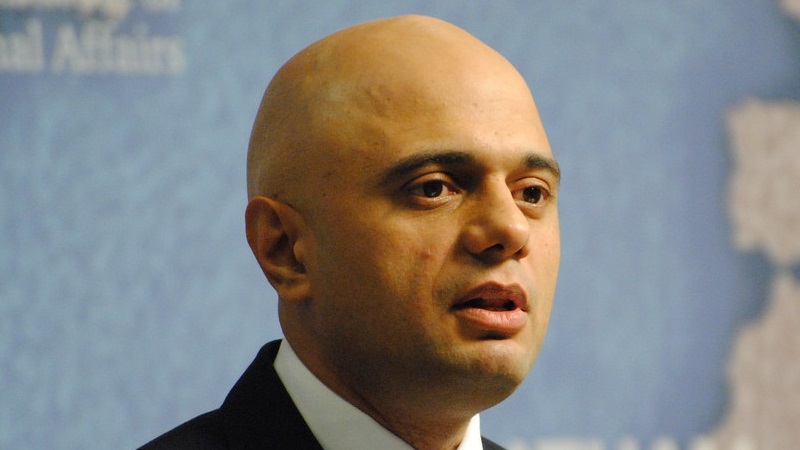Reports that UK chancellor Sajid Javid is considering a 20% cut to pension tax relief in his upcoming March 2020 budget has left the investment industry worried that higher-rate taxpayers will be less incentivised to pay into their pensions.
The Financial Times reported on Friday evening that Javid was considering halving the 40% relief currently enjoyed by higher rate taxpayers in an effort to raise an extra £10bn annually for the UK’s strained public finances.
But the investment industry has warned the rumours create unwanted uncertainty for savers and threaten to reduce the amount that people save for retirement.
Investors are the victims of pension uncertainty
AJ Bell senior analyst Tom Selby says barely a budget goes by that the Treasury isn’t rumoured to be pondering a radical pension tax relief reform and investors are the main victims of the resulting uncertainty.
Selby says: “There now needs to be an acknowledgement that the lack of clarity about the future of pension tax relief – and the rumour and speculation this causes – needs to be addressed.
“Savers should be confident the product they commit their hard-earned cash to for decades won’t be subject to constant change.
“If there is to be further reform to pensions taxation, we urge the government to take a genuinely long-term approach by committing not to make further changes for at least 10 years,” he adds.
Undermining the success of auto enrolment
“In terms of simple appeal, a flat rate relief of 33% would see the government add £1 for every £2 from individuals,” says Aegon pensions director Steven Cameron.
“But, if set below 30%, higher rate tax payers expecting to pay higher rate tax in retirement might find pension saving unattractive, undermining the success of automatic enrolment, which ‘works’ because pension saving is in virtually everyone’s interest.
“Simply removing higher rate relief, and granting 20% relief to everyone, would not affect basic rate pension savers, but would severely dent the attractions for higher rate taxpayers many of whom are far from ‘wealthy’,” he added.
Portfolio Adviser sister publication International Adviser recently reported that higher and additional rate tax payers fail to claim around £850m a year in pension tax relief, because of how complex the system is to navigate.
Too difficult to pull off?
A pension tax relief reform was discarded in 2015 because of the many difficulties that would need to be addressed.
“The three biggest areas of complexity relate to the tax treatment of employer contributions, how to avoid a ‘salary sacrifice loophole’, and how to apply such an approach to defined benefit schemes,” Cameron says.
He wants the government to test any new approach with savers to understand how it might change retirement savings behaviours.
Fiona Tait, technical director at Intelligent Pensions, agrees, pointing out 20% is at the lower end of range of reliefs discussed in previous consultations, which would mean far less money would enter into the pension system as a whole.
“I would suggest that some proper modelling is carried out to assess whether 20% is, in fact, the most suitable rate or just convenient for a government who wants to keep the cost of tax relief to a minimum.”
Tait adds: “We have already seen just how badly wrong that can go with the tapered annual allowance. A flat rate of 20% might make the change easier to manage workplace schemes where pension contributions are deducted from pre-tax earnings, but it doesn’t address the issues that would be faced by final salary schemes where funding levels could be heavily impacted.”
Re-distributive measures could be a false economy
Jon Greer, head of retirement policy at Quilter, suggests a cross-party independent commission makes sure the government gets it right.
“Moving to a flat rate system could easily be presented as a re-distributive measure aimed at boosting the pensions of lower earners, funded by slashing the pension tax break for those on higher incomes,” Greer says.
“But it could be a false economy if it discourages overall levels of pension saving and damages the fundamental principle that pension saving is effectively free of income tax.”
But Greer was doubtful the government would establish an independent commission “since the Treasury is unlikely to give up responsibility for such a large part of government spending”.
Chancellor should tackle ‘ridiculously complex’ annual allowance
Selby lists the annual allowance as one area the government should consider changing if it wants to reform pensions, describing it as “ridiculously complex, with three different versions for people to navigate.”
Selby says: “Moving to a single annual allowance for defined contribution (DC) savings would represent a significant positive step in simplifying pensions. There should then be an evaluation of whether the annual allowance is an appropriate mechanism for controlling defined benefit (DB) pension costs given the problems it has caused.
“One option worth considering, and flagged previously by the Office of Tax Simplification, would be to control DC pensions with a single annual allowance and DB with a lifetime allowance.
“This would radically simplify the rules and remove the unfair punishment against strong investment performance causes by the lifetime allowance in DC pensions.”










